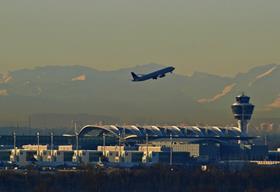
The European Commission has issued almost €800m (US$1.1bn) in fines to 11 airlines for involvement in a global cargo price-fixing cartel that ran from 1999 to 2006.
The EU’s competition watchdog said the carriers coordinated their surcharges on fuel and security without discounts over the six-year period, a situation which likely would have continued without the intervention of the Commission.
“It is deplorable that so many major airlines coordinated their pricing to the detriment of European businesses and European consumers,” said European competition commissioner Joaquin Almunia.
Ms Almunia said rising fuel and security costs were no excuse for companies to collude on prices.
“If companies’ costs increase, it’s normal that their prices also increase,” she stated. “But companies cannot collude to fix the price for customers.”
The cartel began with agreements between the airlines to implement a “flat rate surcharge per kilo for all shipments”, according to the Commission, continuing on to the introduction of a securities surcharge, with the carriers refusing to pay commission on the surcharges to their clients.
The 11 airlines involved in the price-fixing cartel were Air France-KLM, fined €310m (US$426.8m); Martinair, fined €29.5m (US$40.6m); British Airways, fined €104m (US$143.1m); Cargolux, fined €79.9m (US$110m); Singapore Airlines, fined €74.8m (US$103m); SAS group, fined €70.2 (US$96.6m); Cathay Pacific, fined €57.1m (US$78.6m); Japan Airlines, fined €35.7m (US$49m); Air Canada, fined €21m (US$28.9m); Qantas, fined €8.9m (US$12.2m); and LAN Chile, fined €8.2m (US$11.3m).
The cartel was brought to the Commissions attention by German airline Lufthansa – the airline was also involved in the cartel, but escaped a fine in return for blowing the whistle on the price-fixing.
Air France-KLM, owner of subsidiary Martinair, said the fines were “disproportionate”, as “the actions in question had no detrimental effect on the freight shippers nor the freight forwarders”.
The group said it would appeal the fine in the EU General Court, a sentiment echoed by the SAS group and Singapore Airlines.
Eleven other carriers and one consultancy firm were also initially charged by the Commission, but those charges were dropped because of a lack of evidence.
Fallout from the price-fixing scandal has extended beyond the EU; Australian airline Qantas was previous also charged A$20m (US$20.1m) by the Australian Competition and Consumer Commission (ACCC), which said executives involved potentially faced lengthy jail sentences.
“They’ll have to take into account now the fact that if they engage in any serious hardcore cartel activity, they now face the prospect of going to jail for up to 10 years,” ACCC chairman Graeme Samuel told the ABC.
“I suspect that’s going to be far more important than any court orders restraining them.”



